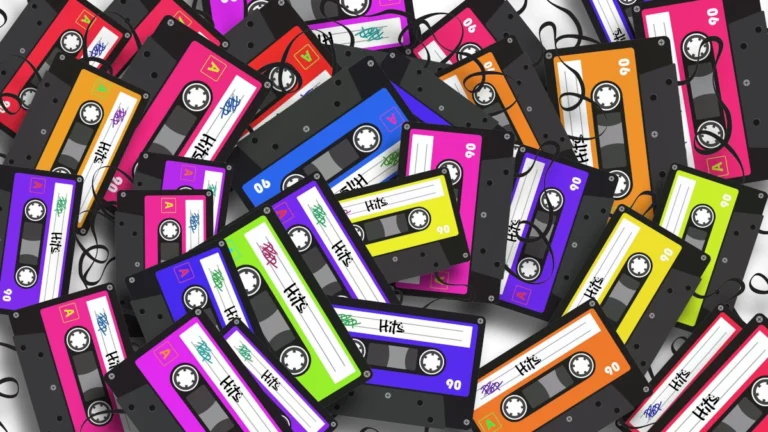AI was supposed to carry the load. It handed me a shovel.
When I was a kid in the Austrian countryside of the Seventies, I was addicted to popular science magazines. We had only one place to buy them, and it wasn’t in the village. It was a monthly publication, so when I got my hands on a new issue, I’d already wrung the last one dry. Every word devoured, every diagram traced.
Naturally, I mainlined every glorious techno-fantasy like it was prophecy. Nuclear fusion giving us free energy. Giant wheel-cities orbiting Earth, liberating humanity from its smelly terrestrial predicament. Asteroid mining turning space rocks into treasure chests. And of course, computers that would take the drudgery of life off our feeble shoulders. I lived in a fantasy world, but that’s the prerogative of children: heads in the clouds, feet off the ground.
So no—AI is not the first promise that’s hovered like a cartoon halo over my head.
When I lived in Paris about a quarter century ago, I worked briefly in a startup. Supposedly, we were the future of hotel and event ticket bookings. A swarm of young, sharp minds hammering out websites and interfaces with the intensity of a caffeine cult. I joined as a translator, brought in to clean up the linguistic mess left by my predecessor. Perfect student gig. I soaked up the atmosphere of disruption and techno-euphoria like a sponge in Red Bull. The business plan, however, was so soaked in wishful thinking you could’ve wrung out a wet dream.
It was great—until it wasn’t. Years of work and fervor collapsed in a puff of venture smoke. Turns out you can’t run a company on vibes alone. My startup, like so many others, got buried in the dotcom avalanche.
Lesson learned: big promises usually lead to big disappointments. But I learned something else. The internet didn’t vanish. It just shook off the idiots and grew up. New players, new humility, boring-as-hell websites like Amazon—those are the ones that became giants.
The future arrived, alright. Just not the one we imagined. It was faster, leaner, more service-heavy. But not simpler. The machine didn’t free us. It just got better at feeding us what we already like, ensuring we never trip over anything new by accident again.
So yes—the promise was real. But it wasn’t lifted by dreamers. It was lifted by grinders. The ones with stamina, patience, spreadsheet discipline, and an unholy devotion to systems. The ones who could eat bureaucracy for breakfast and still debug code by lunch.
And not just the big players. Also the tiny ones like me. I’m a one-man band, and what I do today wouldn’t be possible without the digital scaffolding the internet built. I invented my own life. It cost me years of sweat, but it’s better than the prefab options I started with.
That Paris stint taught me to look at miracle promises with a squint and a smirk.
And now, here we are again. AI. Here to lighten the load. Again.
Will it?
Before I ever touched the stuff, I was sold the gospel of ease. AI would be my mechanical messiah—working silently while I sipped espresso and stared meaningfully into the middle distance. It would do the boring bits. Handle the repetitive lint. Be my second brain. My productivity sidekick. That’s what they promised.
And if you’re the believing kind, you might still buy it. My brother, who runs a plumbing business, said he can tell instantly if an email was written by AI. The phrasing’s too predictable, too polished. I told him it’s because people just click the auto-reply and send it off without injecting a single thought. Garbage in, garbage out. The machine can only remix what you give it.
That’s the thing about promises—they only become dangerous when you actually believe them. Especially the kind that offer reward without effort. The idea that you’ll sip mojitos on the beach while the machine grinds out your life’s work—and that the result will somehow be excellent.
I came late to the AI party. My wife nudged me toward it. I resisted. For a long time. How could a machine replicate creativity? But I gave in. Started asking questions.
And just like that, the fantasy peeled off like cheap wallpaper. If you take it seriously—if you don’t treat it like a toy—it doesn’t simplify your life. It detonates it. It replaces boredom with complexity. It demands clarity where I used to coast on gut feel. I wrote prompts longer than essays. I explained things to a machine in obsessive detail, using human language instead of code. I poked at its limits like a researcher with a nervous breakdown.
Old notes I’d let rot in the dark got unearthed. Half-finished thoughts I once ignored were now rewritten, sharpened, transformed. What was supposed to lift the load dropped a new one on me: the burden of potential.
Decades of scattered files, task lists, notes. My whole intellectual life was a junkyard of abandoned ideas. Too much to triage, too painful to excavate. So I ignored it.
And then I had an interlocutor. One that never sleeps, never cancels lunch, never gets derailed by kids or divorce or the endless parade of human distraction. It gave instant feedback, relentlessly. It made my head spin. I worked through daylong sessions, physically wrecked by the end—but the shapeless junkpile began to shift into something else: structure. Meaning. A shot at coherence.
Getting good results with AI is not a free ride. It’s a knife fight. It’s precision work. It shines a floodlight on every lazy assumption and asks, over and over: What exactly do you mean?
If you don’t know, it won’t carry you. It will expose you. A dull mind feeds it sludge, and the machine spits back polished sludge. Mediocre in, articulate mediocrity out.
It’s like a kitchen knife. In the hands of a great chef, you get haute cuisine. In the hands of your average neighbor, you get a mangled sandwich.
At its core, AI is a mirror. And it doesn’t flatter.
But if you show up sharp, focused, and willing to be challenged—it’ll give you access to tools you didn’t know you were allowed to use. I now build things I couldn’t have dreamed of. The machine doesn’t just mimic thought—it expands it. But that expansion costs you. I walk away some days mentally drained, like a craftsman limping from the forge. Still, the result? Worth it.
Human-machine collaboration isn’t magic. It isn’t genius-on-demand. It’s leverage. And leverage is dangerous. It multiplies whatever you bring. If you bring clarity, it sharpens you. If you bring mush, it multiplies your confusion. It won’t democratize brilliance. It will amplify your bullshit.
When I was a student, preparing for our final exam in Budgetary Law, someone asked the professor what documentation was allowed. He said, “Take the whole library if you want. It won’t help you. If you can’t think, no book on Earth will save you.”
Same goes here. If you can’t wrestle meaning out of the fog in your own skull, AI won’t do it for you. It will ask questions you can’t answer, offer insights you don’t know what to do with, make suggestions you’re too lazy to refine.
Lazy in, lazy out. Sharp in, sharp out. The machine won’t save you.
It will reveal you.




